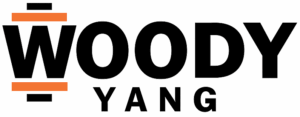The needle drops, or perhaps more accurately, the algorithm loads. Artificial intelligence is no longer a futuristic concept hovering on the horizon of the music world; it’s here, creating melodies, generating lyrics, and even mimicking the nuances of human performance with unsettling speed. In boardrooms and studios alike, a single question echoes: Is AI the next Napster? The comparison is potent, evoking memories of a seismic shift that redefined how music was consumed, distributed, and valued. Two decades ago, Napster arrived like a digital meteor, leaving the music industry reeling from the shockwaves of file-sharing. Today, AI presents a different kind of disruption, one that strikes at the very heart of creation itself. Yet, while the anxieties are palpable and the potential for upheaval is undeniable, drawing a direct parallel to the Napster era requires a closer look at the lessons learned, the technological differences, and the industry’s evolved posture.
The Napster saga was, at its core, a distribution crisis. It wasn’t about *how* music was made, but *how* it was shared and accessed. Suddenly, the meticulously crafted gatekeeping mechanisms of labels and retailers crumbled under the weight of peer-to-peer networks. The initial reaction from the music industry was one of outright hostility and fierce litigation, a defensive crouch against an undeniable technological tide. While they eventually adapted, embracing digital distribution through models like iTunes and later streaming services, the initial resistance cost them valuable time and arguably damaged their relationship with consumers who had tasted the forbidden fruit of free access. The “Napster moment” became a cautionary tale about underestimating technological shifts and alienating your audience.
So, is AI setting the stage for a similar cataclysm? In many ways, the potential for disruption is even more profound. AI doesn’t just bypass distribution channels; it has the capacity to become a creative collaborator, a tireless generator of new content, and potentially, a replacement for human artists in certain contexts. The legal and ethical quagmire surrounding AI-generated music is immense – who owns the copyright? How do we distinguish original work from algorithmic mimicry? The fear is that AI could flood the market with endless, low-cost content, devaluing human artistry and making it harder for artists to earn a living. This scenario echoes the devaluation concerns from the Napster era, where the perceived “free” nature of music undermined its monetary value.
However, crucial distinctions exist. The music industry of today is not the same monolithic entity that faced Napster. It has learned, albeit painfully, about the need for adaptation. Copyright law, particularly in music, is notoriously complex and robust, and labels are already mobilizing legal resources and advocating for regulatory frameworks around AI. Furthermore, AI’s disruption is primarily focused on *creation* and *ownership*, not just distribution. While AI can generate music that consumers might not distinguish from human work (as demonstrated by experiments where listeners couldn’t tell the difference in a playlist), the human element – the raw emotion, lived experience, and unique artistic vision – still holds significant value for many. Professional ears, like mixing engineers and producers, are more likely to spot the algorithmic fingerprints, suggesting a potential divide between consumer perception and artistic authenticity.
Ultimately, AI’s impact on the music industry is likely to be more nuanced than a simple repeat of the Napster crisis. Instead of a single, industry-upending event, we might see a gradual integration and specialization. AI could dominate niche areas like background music, royalty-free libraries, and hyper-personalized soundtracks, freeing up human artists to focus on high-level creative expression and performance. It could also become a powerful tool *for* artists, assisting with composition, production, and even marketing. The challenge for the industry, artists, and listeners alike will be navigating this evolving landscape, defining the boundaries between human creativity and algorithmic generation, and ensuring that artists can still thrive in a world where music creation tools are becoming exponentially more powerful and accessible. Will AI be a destructive force like Napster, or a transformative collaborator that pushes the boundaries of what music can be? The answer is still being written, one algorithmically generated note at a time.














